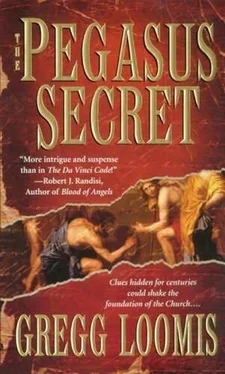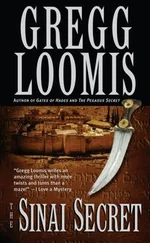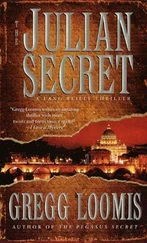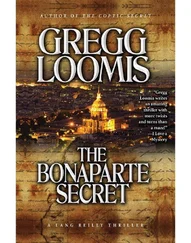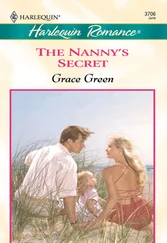Once he hung up, he continued down The Strand until he reached the Temple Bar Memorial, an iron griffin that marked the place the actual City of London met Westminster, two of the municipalities generally lumped together as "London." Here The Strand became Fleet Street, the former center of London's newspaper publishers.
Lang wasn't here for newspapers. For that matter, the press had long since departed for the suburbs: shorter commutes, lower rents and more modest salary demands from unions.
One last check behind him and he turned into a narrow street, more of an alley, Middle Temple Lane. From here an even more confined byway led to a small park surrounded by the buildings of the Temple Bar, the site of the offices of almost every barrister in London.
Lang let his memory lead him up a marble staircase worn uneven by centuries of clients seeking potential rectification of injustice and certain diminution of their money. At the top, a half-glass door bore flaking gilt letters, "Jacob Annulewicz, Barrister."
Barrister Annulewicz's business spilled into the shabby waiting area. Two chairs covered in a chintz popular in the 19405, worn almost beyond recognition, overflowed with stacks of paper. Files were piled on a much-abused table. The secretary's desk was surprisingly neat, its peeling veneer visible under an over-sized computer monitor, the only indication Lang was still in the twenty-first century.
If there was one, the secretary was gone, dismissed for the duration of Lang's visit.
"Reilly!"
An older man stood in the doorway to the inner office, dressed in a black gown, a starched white split dickey at his throat and a short white periwig perched on an otherwise bald scalp like a bird's nest on a rock.
"Jacob!" Lang set his bag down to return a bear hug. "When did you join a Gilbert and Sullivan revival?"
Jacob stepped back, releasing enough pressure to allow at least shallow breathing. "Still the smartass, I see."
"And you're still defending the indefensible," Lang said, indicating the robe."What's with the costume? I thought you only wore it to court or with a mask on Guy Fawkes's Day."
"And where do you think I was just before you called, the Mayfair Club?"
"Not unless they've substantially relaxed their membership requirements."
Jacob beckoned Lang into his office, a small room that reeked from the briar pipes dead in an ashtray. "Not likely," he said without rancor. "Still no women, Jews or Labour MPs. And you have to have a letter from at least five members, two of whom must be deceased."
Jacob's office was as cluttered as the outer room. He moved a stack of files to look under it, set it down and lifted another. This time he uncovered a small wooden box into which he put the wig.
"Clubs. It is still difficult, being one of Jehovah's chosen among the Gentiles."
Lang moved papers from a chair and sat on genuine Naugahyde. "From the looks of your waistline, you haven't encountered any good pogroms lately. I take it you're still away from the Promised Land by choice."
The son of Polish Holocaust survivors, Jacob had been taken to Israel as a child. He subsequently immigrated to England, becoming a British citizen, an act that did not deprive him of his Israeli citizenship but made him a prime candidate to become one of the Mossad's undercover agents stationed in friendly and unfriendly countries alike.
If history had taught the Jews anything, it was the uncertainty of alliances with goyim. Consequently, they spied on friend and foe alike with admirable evenhandedness.
Jacob's brief had been to keep an eye on Arab diplomats in London, to pass along to his handlers the snippets of information from which the tapestries of international affairs are woven. The information might or might not be passed along to the intelligence community of the United States, which hosted no Iraqi, Iranian or Liberian embassy of its own upon which to spy.
Somewhat less well known was Jacob's ability with explosives, learned during his time in the Israeli Army before his migration to England. Unconfirmed rumor had it that he was the one who had gotten into the hiding place of one of Hamas's more notorious terrorists and wired T4 to the telephone's dial. The next call blew the man's head off without so much as cracking the mirror on the wall. True or not, Jacob had the reputation of being the duke of detonation, a prestidigitator of plastique.
The Americans as well as the British had suspected his duties included spying on them as well. All potentially aggrieved parties – CIA, FBI, MIS, MI6 – agreed he was now retired, no matter how odd his choice to spend his final years in the practice of law that had been his first love, or, odder still, his preference for London drizzle over Mediterranean sun.
Jacob opened doors behind his desk, revealing a small cupboard, counter and gas ring upon which sat a teapot. "Still lemon, no sugar?"
Lang had to smile. "Age hasn't taken your memory."
Jacob poured into porcelain mugs. "Not entirely a blessing. I can still remember whom I dislike but my eyesight's gotten so bloody bad, I can't see the blokes coming." He opened a tin and shook his head sorrowfully. "Out of biscuits, I'm afraid." He extended a steaming mug and lit one of the malodorous pipes. "So brief me on the last ten years, Langford. You might include the reasons for that ridiculous moustache, what I hope are false jowls and that dreadful German-made suit."
Lang glanced around the room and touched his ear.
Jacob nodded. "Ah, yes, 'tis a lovely spring day outside. Why don't we take our tea out to the courtyard. Who knows, we might even hear a lark sing, although the last of the poor creatures I saw in London was years ago, dying of the smog, he was."
The sun had grown no warmer and Lang shivered as they entered the courtyard. "If you think your office is bugged…?"
Jacob's head bobbed solemnly. "Was it not your poet Robert Frost who observed some people believe good fences make good neighbors? In our business… our Former business, good listening devices make good neighbors. Your Agency, MIS, the others, do not fear what they think they know. So I let them listen in to what happens in my office. It must put them to sleep. I have nothing to hide anymore. Besides, had it not been for your countrymen…"
"You'd be dead," Lang finished.
Years ago, Lang's employers had known from bugging Jacob's phone that he was going to be nearby at the same time a Hamas group planned to explode a car bomb at the Israeli Embassy. Unknown to the would-be terrorists, the building had long previously been rendered impervious to anything smaller than a nuclear blast and the most serious damage would be to the surrounding neighborhood. Arresting those planning to join Allah in paradise would have tipped the fact the Arab group was seriously infiltrated. Lang had insisted no point was to be served by letting Jacob be reduced to his composite atoms and had warned him clear.
"I would indeed be dead," Jacob agreed, "a fate only marginally worse than old age. Now, the last ten years, what have you been doing that you worry about being overheard?"
Lang told him.
Jacob shook his head. "My sorrow for the loss of your family. Your sister, nephew, I didn't know. But Dawn… A name from the poetry books. You will remember I had the wisdom to ask her what she saw in you when you two visited London some years ago. Lovely person.
"Now you are a lawyer in America, wanted for murders you did not commit both here and there. How may I be of help?"
They had walked the short distance between the law offices and an old round structure, the Temple. Lang pulled open the heavy door and motioned Jacob inside.
"I'm cold," Lang said. "There's no one here and I doubt anyone has bugged this place."
The Temple was just that. Built in the twelfth century by the Order of Knights Templar, it was round with an inner circle supported by columns. In the middle of the circle, several stone effigies reposed on the worn limestone floor, swords clasped to their armored chests. No inscription gave a clue as to their identity. Lang had always assumed they were Templars.
Читать дальше
